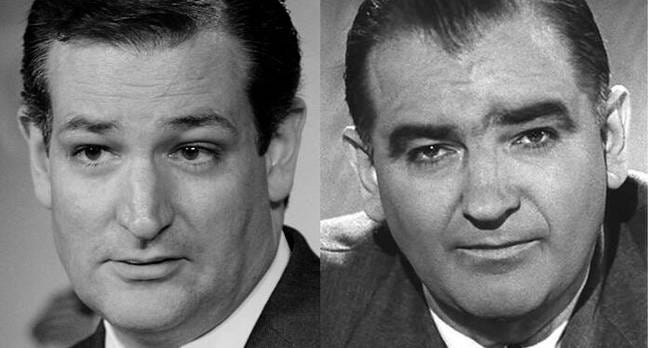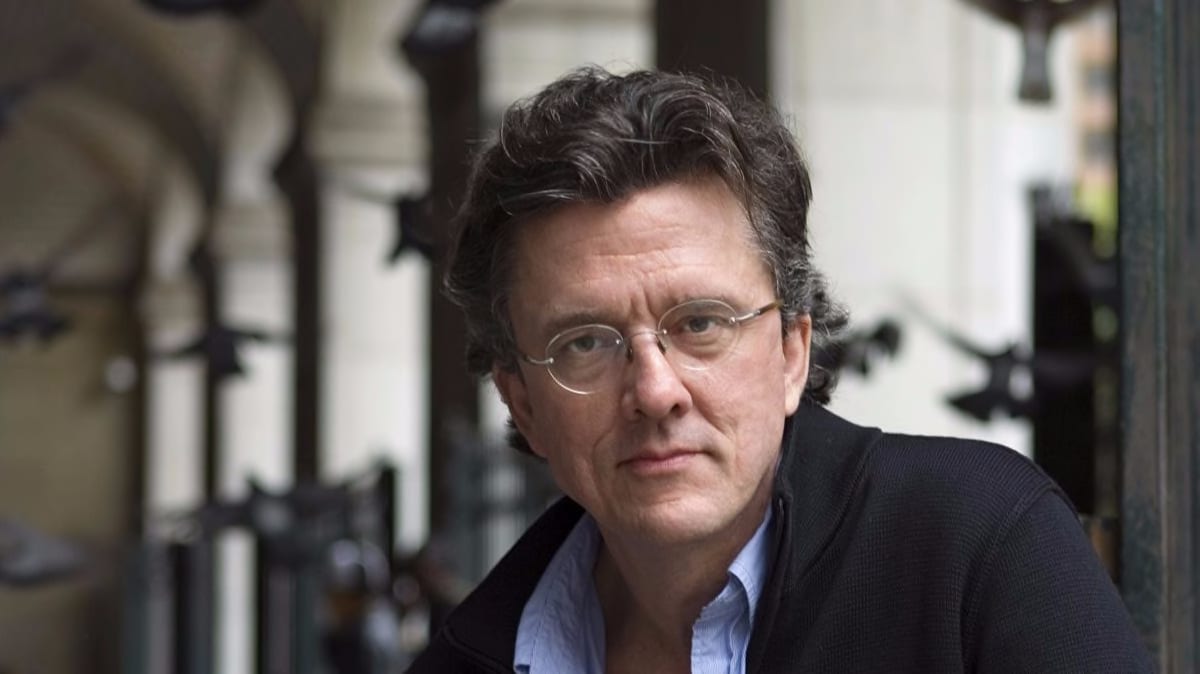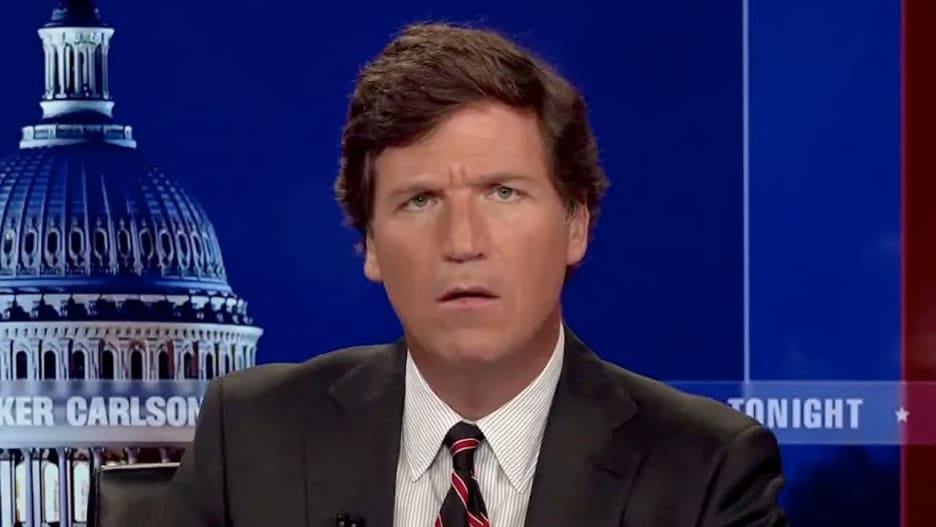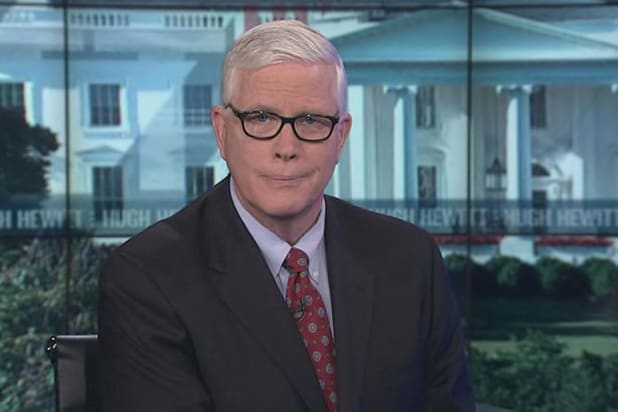Ruminating with KURT ANDERSEN
About whether we’re at a dangerous inflection point and the right-wingers he viscerally loathes
Kurt Andersen, 67, is a gifted novelist, political analyst, and cultural critic. A native of Omaha, he edited the Harvard Lampoon and was a longtime senior writer at TIME, where he covered design among other subjects. In 1986, he and E. Graydon Carter co-founded Spy Magazine, the funniest and most acerbic magazine of its day and the first publication to attack Donald Trump, whom Spy invariably described as a “short-fingered vulgarian.” In the 1990s Kurt briefly edited New York Magazine and then co-founded a news site and magazine called Inside, then co-created and for 20 years hosted Studio 360, a fine public radio show on arts and culture. In recent years, I’ve been hugely impressed by Kurt’s chops as a cultural, political and economic historian. His 2021 podcast, Nixon at War, offers a new perspective on the harm done to the country by the latter years of the Vietnam War. And Fantasyland: How America Went Haywire, a 500-Year History (2017) and Evil Geniuses: The Unmaking of America (2020) are major works that I view as essential to understanding how the United States got so fucked up. Even so, as you’ll see below, I don’t agree with him depicting me and others (including himself) as “useful idiots” in the 1980s and 1990s.
JONATHAN ALTER:
Hi, Kurt.
You and I are in the same place where we feel we're at some kind of inflection point, but we don't really know what the inflection point is. My hair—or what’s left of it—is probably more on fire than yours, because I'm actually losing sleep over the democracy crisis. You’ve described yourself as on a spectrum of complacency to hysteria. Where are you on that spectrum right now?
KURT ANDERSEN:
It depends on the day, literally. I wake up with a sense of doom sometimes or go to sleep with one. We have not stepped over into the abyss yet. It's not “game over” for democracy yet. But we are somewhere between normality and over the abyss and that's a strange place to be. So we don't know how close we are now. I can walk myself back from that feeling we’re at the cliff, that feeling of doom. I don't want to seem complacent, but I see how the federal judiciary and state judges—including many judges appointed by Trump— have responded to Trump's attempt to overturn the election. And so far, the U.S. Supreme Court is continuing to do that. I may hate how they got to a 6-3 Supreme Court. And I hate all [the decisions] that you and I both hate, but so far, the bulwark of the judiciary has not crumbled.
[Georgia Secretary of State] Raffensperger is still around and not scared.
So we'll see. It's scary—no question. I'm not saying it won't ever happen and you people are all nuts for talking in these hyperbolic terms. But push has not come to shove in terms of the end of democracy now. And as a citizen you have to keep your powder dry. You can't have your hair on fire all the time.
JON:
I'm trying to keep that it in mind. I find myself a little hopeful after despairing over the Voting Rights debacle. When Biden was explaining privately a year ago why he wasn't more active on the issue, he’d say privately, “Well, you know there's nothing that gets people to the polls better than telling them that they're taking away your right to vote.”
This reminds me of a couple days before the 2012 election when I got Mayor Michael Nutter of Philadelphia on the phone because the Romney campaign had been telling me privately that there was this huge “white wave” coming for Romney in Pennsylvania, and that Romney was going to win the state and the whole election because of this white wave. So I asked Nutter, “I heard from the Romney people there's a white wave coming.” He says something to the effect of, “There's a wave coming, alright. It's a Black wave and it's going to be bigger than you can possibly imagine. Because once they started trying to suppress the vote in this state, it was all over for the Republicans.” And he was right. They had this huge turnout in Philadelphia and Obama won Pennsylvania pretty easily that year.
If Black people are told they can’t do something that their parents and grandparents fought and died for, they will stand in line for a long, long time to vote.
KURT ANDERSEN:
We don't know yet how effective the new [voter suppression] laws will be. We know the malign intentions. We know they’re directed at reducing Democratic turnout. But they might be a net plus [for Democrats] because of the backlash by Black people and others. And I think we found that the attempts to suppress the Democratic vote managed to suppress the Republican vote because it was Republicans who [especially before 2020] used mail-in ballots more than Democrats in many places.
“… we found that the attempts to suppress the Democratic vote managed to suppress the Republican vote because it was Republicans who [especially before 2020] used mail-in ballots more than Democrats in many places.”
JON:
Right. In the old days, Republican business people used to use absentee ballots when they were going to be away from home on business. But in 2020 there was a really sharp division when Democrats voted by mail because they were more scared of COVID and Republicans voted in person on Election Day. Trump knew that was going to happen, which is why he tried to corrupt the post office.
KURT ANDERSEN:
Those stupid laws are not what give me [a sense of] despair. They’re obviously part of the whole mad crazy authoritarian Republican idea. What we should be scared about is overturning of cast votes after the election rather than suppressing the casting of votes before.
JON:
Yeah, subversion—a new threat— is scarier than suppression, which unfortunately is old but isn’t as bad as it once was. I just read the discussion draft of a bill amending the Electoral Count Act of 1887 that a bipartisan group is working on in the Senate. It doesn’t solve all the subversion problems but goes further than just amending the 19th Century bill to clarify the vice president’s role. It has a provision that would require states to certify their results by December 20th, which would keep the bad guys from running out the clock and creating a constitutional crisis a month later on Inauguration Day. And it seems to bar legislatures from submitting their own slates of electors, as Trump fraudulently tried to do. I generally don’t trust Susan Collins, who is shepherding this, but I kinda think this bill will pass and put up a few more guardrails. They won’t guarantee anything but will make it harder for Trump and Trump wannabes to, in Trump’s words, “overturn” an election.
Changing gears, you have started putting together a Twitter list of people you viscerally loathe.
I'm not really a hater, but I find that, like you, I truly loathe these people. So let's go down your current list.
KURT ANDERSEN:
I'll give you an introduction. They're not like the 10 worst people or the 10 most consequentially hurtful of America. These are the 10 people I fucking hate. I didn't hate Ronald Reagan or either Bush enough for this kind of thing.
JON:
Me either. Especially George H.W. Bush, who I disagreed with but he served his country for a long time. But we can safely say that history will be especially hard on smart, well-educated Trumpists because they all know better. Some benighted Trump voter who has a busy life and doesn't pay close attention—you can't hate that person. But the people who know better are fascists or greedy or moral cowards. There’s not really any other choice.
KURT ANDERSEN:
Well, there are moral cowards—I’m thinking Lindsey Graham— who are just so pathetic they don’t make the top ten. But their flavor of weakness and moral cowardice is tragic in a way. Fucking Matt Gaetz is not tragic. If I had a list of 25, sure, Lindsey Graham would be on it. But this week, anyway, he doesn’t make the cut.
JON:
Yeah, there's a neediness there that’s infuriating but also just sad and pathetic. First on your list: Ted Cruz.
KURT ANDERSEN:
All politicians do cynical things, but the level of his cynicism is extraordinary. When you see his 2016 campaign statements about Donald Trump, which are so correct, obviously, against what he says now—it’s just so revealing of such a despicable, awful character and a caricature of cynicism, combined of course with his sanctimonious religious bullshit. And he never stops. He’s one of those people who when they come on, you just feel like yelling at the television. Mitch McConnell, for variety of reasons, doesn't stir me up as much as Cruz. I admit, it's visceral. It's subjective, so probably the way the guy looks is part of it.

JON:
Before he grew his beard, he looked a lot like Joe McCarthy. He really did. And he's also in that group that I think you identified: Cruz, DeSantis, Pompeo, and Tom Cotton. All four of them went to Harvard Law School. Talk about people who know better. Okay. number two: Tucker Carlson.
KURT ANDERSEN:
Tucker Carlson was a smart, good conservative. journalist back in the last century. I can’t see what is in Carlson’s heart of hearts—or his soul—but it seems to me it's like, “Wow, I'm making millions of dollars doing this, so fuck it. I'm gonna go all in.” So you have to look at the cynicism combined with its effects, most obviously, making more people die by continuing to spread falsehoods about vaccines and other COVID mitigation measures. Tucker Carlson is a lot smarter than Sean Hannity and that makes me more angry.
I remember a few years ago when I was feeling, you know, defensively white-cis-hat and whining to myself, ‘Aww, why does the Left always demonize white men in general?’ And then literally the day I was thinking that, I was watching Fox News and there was Tucker Carlson. I go, “Oh, I get it. This is why.” I mean, this guy is the very embodiment of what is loathsome about our shared race and gender.
JON:
I talked recently to a friend of his who said it wasn't just cynicism— that on the replacement theory stuff he really is a hardcore racist.
Number three: Jim Jordan.
KURT ANDERSEN:
I don't know that he knows better, but he’s just the gym teacher that I hated. There’s a kind of Midwesternism about him that push certain Midwestern buttons of mine.
JON:
I’m a Midwesterner, too, and I know what you mean but his loathsomeness transcends region. Laura Ingraham?
KURT ANDERSEN:
She’s more egregious than Ann Coulter.
JON:
Ann Coulter is anti Trump so I understand why people now hate her less, but why else?
KURT ANDERSEN:
She's not quite as partisan and “I will stick to the talking points” as Laura Ingraham. As awful as so many of the things she has said and written are, Ann Coulter can be funny.
JON:
Donald Trump Jr.
KURT ANDERSEN:
He could be president in 2032. Who knows?
JON:
I don’t think so.
KURT ANDERSEN:
I have always hated him more than his brother or his sister, even though God knows his sister in terms of being a figure of evil in government probably would beat him on some kind of objective list.
JON:
Donald Jr. seems a little…over-caffeinated, except I don’t think its from caffeine. Kevin McCarthy?
KURT ANDERSEN:
Total, obvious cynic. It wasn’t just what he was saying January 6th, January 7th, versus what he was saying a week later and ever since.
JON:
He’s a dumb cynic. Interesting new combo. McConnell?
KURT ANDERSEN:
Even though he doesn't get my blood up as much as others, just the sheer evil geniusness competence of the guy in the service of the bad is [impressive].
JON:
Ron DeSantis.
KURT ANDERSEN:
He’s, again, a guy who has degrees from Harvard and Yale and knows better and is just the worst kind of demagogue—for instance, establishing a police force in Florida dedicated to finding election fraud. What an insane pander.
JON:
Hugh Hewitt.
KURT ANDERSEN:
I don't know why he pisses me off more than almost any other journalist. Maybe because, again, he went to Harvard College probably around the same time you and I did, and he’s not stupid. But he made the choice as with so many Republicans in 2016 to go with that flow, unlike the people on the right who didn't, whether it's Bret Stephens or the never-Trumpers or the rest.
JON:
I used to go on Hewitt’s radio show all the time and we didn't agree about anything, but we could have a civil conversation. I remember running into him in the lobby of 30 Rock right after the 2016 election and he was saying critical things about Trump. And then—like so many others— he flunked the character test of his generation.
It was a binary thing. You either passed or you flunked and what just amazes me still is that Adam Kinzinger and Liz Cheney are the only ones in the entire House who passed and that they are now being thrown out of the party because Trumpism has metastasized. The extent of the cultism after 1/6 is the biggest surprise to me of the last year.
KURT ANDERSEN:
I don't think I will ever stop being shocked by that. It is just a job, man. You know, you can get another job or have another career or whatever when this one's over. There are moral crossroads in life and this is just such an obvious one that I am shocked that for the sake of their job, people make that choice.
JON:
Okay, so McConnell we know was one of your “evil geniuses.” But you also borrowed from communists and called certain liberals “useful idiots,” including yourself. So for people who haven't read the book, explain why you think it would apply to me. This is where in your otherwise brilliant book, I got off the bus.
KURT ANDERSEN:
I mentioned a piece that you wrote in The Washington Monthly because people like you and me were basically saying, “there’s some bloatedness here and tired ways of thinking there” so let's rethink these liberal shibboleths in some ways and let's come together and figure out how to go forward with conservatives in the new age of the digital world. And I think, in retrospect, we got played. We Democrats, on economics, just followed conservatives to the right. So that's how we were useful idiots.
JON:
You said Democrats kept moving to the center while conservatives kept moving to the right. Well, why is it the fault of Democrats who wanted to rethink some of this? The whole Washington Monthly ethos was to maintain the goals of liberalism, but rethink some of the outdated means of getting there. Why does the fact that those of us who didn’t want to keep the entire New Deal preserved in amber are to blame for the fact that the Republicans kept moving to the right? That was their poison weed. It wasn't on us.
KURT ANDERSEN:
They are to blame. That's why the book is about them. It's not entitled “Evil Geniuses and Useful Idiots.” But as I described in the book, [Washington Monthly-style] thinking led to a further severing of the alliance between the American left and the trade union movement that was disastrous, ideologically and politically. We cannot cast the first stone unless we confess our own sins as well.
JON:
I don't reject your whole premise. And when I look back at the piece of mine you singled out for criticism—my attack on the air traffic controllers union—I agree that it didn’t anticipate that smashing PATCO [the union] would bring such dire consequences in the form of union busting by Reaganites. That union was really kind of holding the country hostage, and there were a lot of other things wrong with it, but if I had to do it over again, I probably wouldn't have written it.
I’m bringing this up because you seem to suggest that Democrats should have looked the other way at horrible racial discrimination in the trade unions, featherbedded contracts with no-show jobs, lazy civil servants, teachers unions that cared a lot more about stupid work rules than their kids, labor costs that were so high that it was impossible to build any of those great new projects in New York that you used to wonderfully propose in Spy Magazine. We couldn't build another 10 feet of subway in New York— why? Partly because of the unions and their stranglehold on building anything. So the idea that by criticizing people on our side of the political divide, whether it's labor or bureaucrats, or whatever in the Washington Monthly, we were handing ammo to the right wing that they wouldn't have had otherwise—I just challenge the premise.
KURT ANDERSEN:
I agree that they didn't hand ammo to them. It's basically that [moderate Democrats] were stepping away from the fray when the other side was deep in the fray. And as you say, you wouldn't have written that piece if you had known what would happen. Well, that's just it and of course, that's why the guilt is much less than for those who knew what they were trying to do. The crushing of that PATCO strike by the Reagan Administration led to a decade of extraordinary union busting because it sent this message that this is the new norm beyond the law.
We started out talking today about the balance between hysteria and complacency. Well, we also have to balance between an honest critique of one's allies and Popular Front America. It's a similar axis, right? The corruption of the construction unions and the Teamsters helped color the whole idea of anti-unionism— or just indifference to unionism. That’s how it happened, as I wrote, during The Washington Post strike in 1975.
JON:
That was a really interesting moment, when the journalists at the Washington Post had to make a decision about which side they were on. But you made it seem like the journalists basically just sold out the blue collar pressmen's union, which in truth hurt its own cause a lot when it destroyed some of the printing presses.
KURT ANDERSEN:
I wasn't saying journalists should have stood up and said that we need unnecessary pressmen. I'm talking about a pattern of behavior and about a system. I mean, we've learned to talk about systemic racism; we need to learn to talk about systemic economic rigging as well, and it's gonna be messy, of course. But there's a reason I have a long chapter in this book, as I did in my previous one, about America versus other countries. The rest of the developed world faced the exact same technological globalist challenges that the United States did economically, and in Europe and Canada and elsewhere they adapted without crushing unions. And today in many of those countries the unions and private management work together well. So I'm saying that, yes, the way it happened in America was a result of these unavoidable global technological changes but other countries respond very differently than we do.
JON:
The moment I focus on in my Carter book is the 1978 debate over labor law reform. If that had passed, Reagan would have tried to repeal it, but he didn’t have a Republican Congress. The bill would have strengthened the ability to form unions and Walmart, or whatever, would have likely been unionized, as it should have been.
KURT ANDERSEN:
There were these key moments where you realize that if more liberals had had a better sense of it, if they had maybe studied the [anti-labor] Taft-Hartley bill from the late 40s or recognized that they shouldn't take these labor privileges for granted, we would have definitely been a lot better off.
JON:
So I want to ask you just one quick cultural thing because you're such a great student of that and you've covered Trump since the 80s. Tommy [our son] thinks Eric Adams is a plausible candidate for president if he can avoid corruption. And his argument is that after Trump, we're never going back to boring cookie cutter politicians, and that American culture and the political-entertainment complex of the United States, has reached a point where we're much more likely to have people with little or no political experience as president—people like Adams who go to clubs at three o'clock in the morning without thinking about it—than we are to have governors or senators as our next set of presidents.
KURT ANDERSEN:
Well, I have been writing for years about this and what I call the “entertainer in chief.” [In Fantasyland], I trace the history from JFK and television rising through Reagan and Clinton and now Trump. Biden’s apparent political problems are partly connected to his presidency not being a particularly great performance. I think your son has a point. A good friend of mine, a very successful television writer and producer, said to me in 2016, “Donald Trump's gonna get elected.” He wasn't a partisan, he just said that people hate politicians and he is not like them in any way, for better or for worse.
Ron DeSantis understands this. You have to carry that anti establishment, anti government character—the guy that Reagan really started embodying— to this next ultra crazy nihilistic level.
JON:
It was Carter who started that whole thing. He was the outsider, non-politician peanut farmer. Is there anybody in the Democratic Party, who you see as being a performer who nobody's talking about? Maybe they're not even in politics now. Maybe in show business.
KURT ANDERSEN:
I don't see the play by Eric Adams that gets him the nomination. I think between now and 2024 there's a reasonable chance that Eric Adams will get into trouble, be investigated.
JON:
The White House or the big house.
KURT ANDERSEN:
I wrote a profile 20 years ago of Tom Hanks and got a flurry of attention going about his political prospects because he actually walked halfway to saying, “Yeah, maybe I'll run” in that piece. But he backed off. There’s Elon Musk, though he's not a Democrat in any ideological way except legalizing weed. So I don't see it.
But part of my hopefulness about the Republican future is that Ted Cruz is not that guy, right? Voters aren’t going, “Yeah, I like that guy, ‘cuz he tells the truth.” Nobody thinks that. Same with Josh Hawley. Ron DeSantis has got some of the thuggish instincts in that performative tough guy way. So maybe, but it probably won’t be guys who went to Harvard and Yale.
JON:
Thanks, Kurt.










Maybe Tom Hanks will reconsider.
"As someday it may happen that a (culprit) must be found,
I've got a little list -
Of society's offenders who might best be underground,
And who never would be missed -
They'd none of 'em be missed!"
Koko from "The Mikado"
by Gilbert & Sullivan